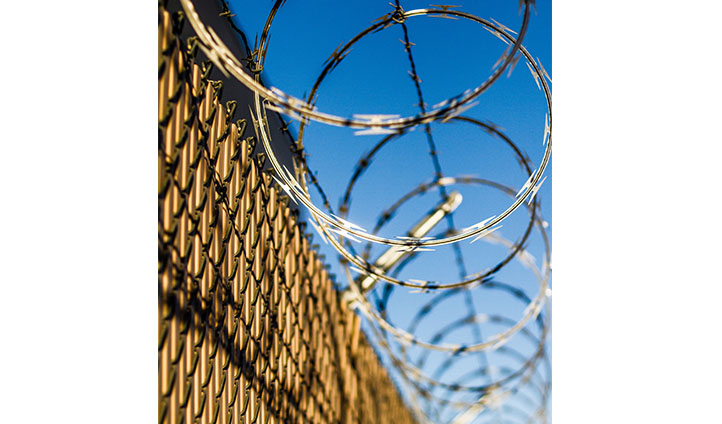Menu
Hot-Topics
February 19, 2026 | SCOTUS Reaffirms Fourth Amendment Standard for Police Responding to Household Emergencies
Category: Homepage post

Williamson City Planning v Hamilton Bank Limited Where Takings Claims May Be Filed
In Williamson City Planning v Hamilton Bank, 473 U.S. 172 (1985), the U.S. Supreme Court clarified where plaintiffs may file Fifth Amendment takings claims. It held that “if a State provides an adequate procedure for seeking just compensation, the...

New Justice Brett Kavanaugh Hears Oral Arguments in Four Cases
The U.S. Supreme Court is back to full strength. On October 8, 2018, Brett M. Kavanaugh was sworn in as the 114th Justice of the Supreme Court. The nine justices heard oral arguments in four cases this week, three of which involved the Arm...

SCOTUS Kicks Off Term with Oral Arguments in Six Cases
The U.S. Supreme Court returned to the bench this week, with oral arguments in six cases. The issues before the justices ranged from federal takings claims to endangered animals. Below is a brief summary of the cases: Weyerhaeuser Company v. ...

What’s on Tap for the U.S. Supreme Court? Previewing the October 2018 Term
While it is still unclear whether the U.S. Supreme Court will be comprised of eight members or nine, the justices will begin holding oral arguments for the October 2018 Term in a few short weeks. Starting on October 1st, the Court will hear a number ...

SCOTUS Considers Sentencing Guidelines in Rosales-Mireles v United States
In Rosales-Mireles v United States, 585 U. S. ____ (2018), the U.S. Supreme Court considered how to remedy a clear error by the district court in calculating a defendant’s United States Sentencing Guidelines range. By a vote of 7-2, the Court held ...

Impact of Jennings v Rodriquez on Immigrant Detention
In Jennings v Rodriquez, 583 U. S. ____ (2018), a divided U.S. Supreme Court held that detained immigrants do not have the right to periodic bond hearings during the course of their detention. It further ruled that Ninth Circuit Court of Appeals misa...

Sveen v Melin Is First Contracts Clause Case in Decades
The Supreme Court addressed the Constitution’s Contracts Clause for the first time in 25 years in Sveen v Melin, 584 U. S. ____ (2018). By a vote of 8-1, the Court held that the retroactive application of Minnesota’s revocation-on-divorce statute...

Riviera Beach Council Cannot Arrest Lozman for Speaking a Public Meeting in Lozman v City of Riviera Beach
In Lozman v City of Riviera Beach, 585 U. S. ____ (2018), Fane Lozman, an outspoken critic of the Riviera Beach City Council, scored a second victory before the U.S. Supreme Court. By a vote of 8-1, the Court held that the existence of probable cause...

Sause v Bauer Addresses Right to Pray
In Sause v Bauer, 585 U.S. ____ (2018), the U.S. Supreme Court concluded that it needs more facts before deciding whether police officers violated the constitutional rights of a woman who they allegedly told to stop praying. In their unanimous per cu...
Previous Articles
SCOTUS Decision in Bowe v. United States Is First of the 2026 Term
by DONALD SCARINCI on February 5, 2026
In Bowe v. United States, 607 U.S. ___ (2026), the U.S. Supreme Court held that Title 28 U.S.C. § ...
SCOTUS Rules State Can’t Immunize Parties from Federal Civil Liability
by DONALD SCARINCI on January 29, 2026
In John Doe v. Dynamic Physical Therapy, LLC, 607 U.S. ____ (2025) the U.S. Supreme Court held that...
Supreme Court to Address Racial Discrimination in Jury Selection
by DONALD SCARINCI onWhile the U.S. Supreme Court has concluded oral arguments for the year, it continues to add cases t...
The Amendments
-
Amendment1
- Establishment ClauseFree Exercise Clause
- Freedom of Speech
- Freedoms of Press
- Freedom of Assembly, and Petitition
-
Amendment2
- The Right to Bear Arms
-
Amendment4
- Unreasonable Searches and Seizures
-
Amendment5
- Due Process
- Eminent Domain
- Rights of Criminal Defendants
Preamble to the Bill of Rights
Congress of the United States begun and held at the City of New-York, on Wednesday the fourth of March, one thousand seven hundred and eighty nine.
THE Conventions of a number of the States, having at the time of their adopting the Constitution, expressed a desire, in order to prevent misconstruction or abuse of its powers, that further declaratory and restrictive clauses should be added: And as extending the ground of public confidence in the Government, will best ensure the beneficent ends of its institution.
Awards





